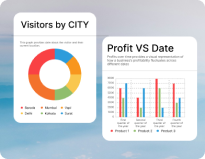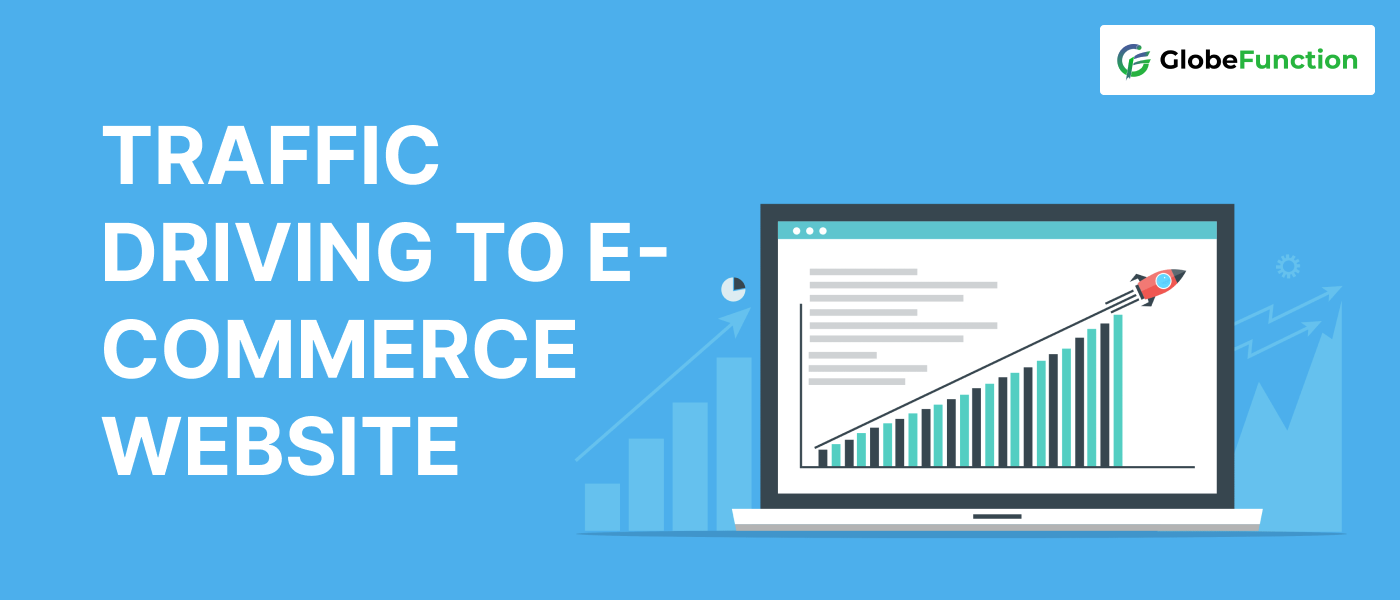Introduction
In the ever-evolving world of e-commerce, having a visually appealing and functional website is not enough. To succeed in the online marketplace, you need to drive traffic to your e-commerce website. This article will explore effective strategies and techniques to attract visitors to your online store, increase brand visibility, and ultimately boost sale
1. Search Engine Optimization (SEO)
Before delving into the significance of user experience in e-commerce, let’s understand what it actually means. User experience refers to the overall experience a user has while interacting with a website, app, or any digital platform. It encompasses various elements such as ease of navigation, visual appeal, website speed, responsiveness, and the ability to accomplish tasks smoothly.

2. Pay-Per-Click (PPC) Advertising
PPC advertising allows you to display ads on search engine results pages or other websites and pay only when users click on your ads. Platforms like Google Ads and Bing Ads offer robust targeting options, enabling you to reach your desired audience effectively. Create compelling ad copy, select relevant keywords, and optimize your landing pages to maximize the effectiveness of your PPC campaigns
3. Content Marketing
Producing high-quality content can drive traffic to your e-commerce website and establish your brand as an authority in your industry. Create informative blog posts, how-to guides, and product reviews that resonate with your target audience. Promote your content through social media channels and email marketing campaigns to reach a wider audience and encourage website visits.
4. Social Media Marketing

5. Influencer Marketing

6. Email Marketing
Building an email list and implementing email marketing campaigns can be highly effective in driving traffic to your e-commerce website. Offer incentives such as exclusive discounts, early access to new products, or informative newsletters to encourage visitors to subscribe. Segment your email list based on customer preferences and send targeted, personalized emails to drive engagement and website visits.
7. Affiliate Marketing
Engaging in affiliate marketing can expand your reach and drive traffic to your e-commerce website. Partner with relevant websites, bloggers, or influencers who promote your products or services in exchange for a commission on sales generated through their referral links. This can expose your brand to new audiences and lead to increased website traffic and conversions.
8. User-generated Content (UGC)
Encourage your customers to create and share content related to your brand and products. UGC, such as reviews, testimonials, and social media posts, can build trust and influence potential customers to visit your e-commerce website. Implement features that allow customers to easily submit and share UGC, and consider running contests or giveaways to incentivize content creation.
9. Referral Programs
Implement referral programs that incentivize existing customers to refer your e-commerce website to their friends and family. Offer rewards or discounts for successful referrals, motivating customers to spread the word about your brand. This word-of-mouth marketing can significantly drive traffic to your website from highly targeted sources.
10. Website Optimization

Conclusion
Driving traffic to your e-commerce website requires a multi-faceted approach that combines various strategies and techniques. By implementing effective SEO practices, leveraging PPC advertising, creating valuable content, utilizing social media marketing and influencer collaborations, implementing email marketing campaigns, engaging in affiliate marketing, encouraging user-generated content and referrals, and optimizing your website for a seamless user experience, you can attract a steady stream of visitors and increase conversions. Remember to continually analyze and refine your strategies to stay ahead in the competitive e-commerce landscape.
FAQs
SEO is a gradual process; visible results may take several weeks to months, but the long-term benefits make it a worthwhile investment.
The effectiveness depends on your target audience. Experiment with platforms like Instagram, Facebook, and Pinterest to see where your audience engages the most.
Regular updates are beneficial. Aim for a balance between fresh content and evergreen material, with weekly or bi-weekly updates.
Absolutely. Email marketing is a cost-effective way for small businesses to engage with their audience, promote products, and build relationships.
Ideally, aim for a page load time of 2-3 seconds. Faster loading times improve user satisfaction and positively impact search rankings.
While not mandatory, well-executed paid advertising campaigns can provide a significant and immediate boost in traffic when complementing organic strategies.














